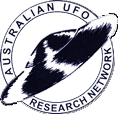| THE AUSTRALIAN UFO RESEARCH NETWORK AUFORN CODE of CONDUCT and ETHICS - 2000 & 2009 All AUFORN Investigator's follow a Code of Conduct and Ethics Issued 1st - February 1998 to 2009 |
|||||
 |
|||||
|
SECTION 1: Responsibility to the Witness
1.1 The Identity of the witness is confidential and must not be disclosed unless it is already commonly known, e.g. through publication in the media. Otherwise written permission must be obtained authorising disclosure. 1.2 It is the investigator's responsibility to warn the witness of the consequences of disclosing his identity, but he need not necessarily be discouraged from doing so. 1.3 Whenever practicable, interviews should be by prior appointment. 1.4 A request by the witness, or by his parent or guardian, for a third party to be present at the interview, must be honoured. 1.5 A categorical refusal by a witness to give information, to grant an interview or to in any way must be accepted. 1.5 An investigator must not enter private property without the permission of the owner, occupier or authorised agent. 1.7 Any damage to property caused by an investigator in the course of an investigation, for which he admits liability, shall be made good or the cost of repair paid by the investigator. 1.8 When dealing with a child witness, if further investigation is likely to reinitiate any trauma associated with the experience, then the investigator should not proceed. 1.9 When dealing with a witness who may be psychologically disturbed, the investigator should call in a qualified psychologist or psychiatrist to evaluate the claims. If this is not possible, the investigator should note down the witness's claims with a minimum of stress and provocation. 1.10 In photographic or artefact cases, a receipt should be issued for any items borrowed for analysis, and the witness should be assured that these items will be returned, unless the witness agrees otherwise. 1.11 The investigator must obtain the witnesses written permission before using specialised techniques, or equipment, such as hypnosis. The pros and cons of the technique should be outlined to the witness beforehand. Such aids must only be used by fully qualified practitioners; in the case of hypnosis, by a qualified psychologist or psychiatrist. No witness shall be subjected to hypnosis or any other psychological technique for the sole purpose of testing their veracity. 1.12 If the witness requests to be informed of any conclusions reached by the investigator, the request should be respected. 1.13 The physical health and psychological well-being of the witness should be of primary concern to the investigator throughout the investigation. SECTION 2: Responsibility to the Public 2. 1 Investigators should deal politely and co-operatively with the police and other authorised bodies, as far as is practicable. 2.2 If, In the course of investigation, a situation is encountered which is liable to become dangerous to the general public or to property, the police or other responsible body must be notified and all reasonable steps taken to avert the danger. 2.3 Information acquired in the course of an investigation shall not be released to the news media without permission from the witness. 2.4 The investigator shall not issue premature or unsupported statements to the news media concerning any case under investigation. SECTION 3: Responsibility to Ufology 3. 1 The free flow of information shall not be impeded for reasons of personal gain. While an investigator has the right to place limitations on the extent to which information they have acquired shall be published, they should nonetheless make it available for research purposes to their fellow scientific investigators, by whom due acknowledgement should always be made. 3.2 Wherever possible, interviews should be conducted by two investigators, so as to increase the reliability of the information obtained. 3.3 All interviews, particularly in cases of high strangeness, should be electronically recorded unless the use of a recorder is objected to by the witness, or by his parent or guardian. 3.4 Reports should indicate the persons present during interviews, or other activities, and their status. Where practicable, reports should include a signed statement by the witness. 3.5 Except where no restrictions have been imposed by the witness, any investigation report should clearly indicate which items are confidential, and such items should not be included In any copy of the report that is available for public or external inspection. 3.6 So as not to bias witness testimony, the investigator should not discuss their personal theories with a witness during the course of an investigation. In particular, the investigator must not make irresponsible, alarmist, statements which are based on opinion rather than fact. 3.7 At no time should a researcher become Personally or Romantically involved with a Witness or an Abductee . If he or she finds this is happening he or she should cease being his or her investigator and pass he or she on to the appropriate investigator to follow-up. The document shall replace all such preceding documents of the same title. Some adjustments have been made SEC (3.7) by Diane Harrison and Robert Frola for the AUFOR Network. (Compiled by Paul Jackson, with acknowledgements to Mark Moravec, Jenny Randles and ASSAP, upon whose proposed codes this document is partly based). Code of Ethics when dealing with UFO Abductee/Witnesses 1. The Identity of the UFO Abductee and or persons witnessing the ufo / alien encounter, must remain confidential at all times, unless it is already common knowledge i.e Media; either Print, Audio or Visual. Or if the UFO-Abductee/Witnesses, has come forward publicly, or has come forward at UFO meetings, conventions or gatherings. Otherwise written permission must be obtained authorising disclosure.
|
|||||